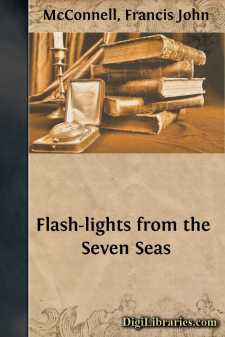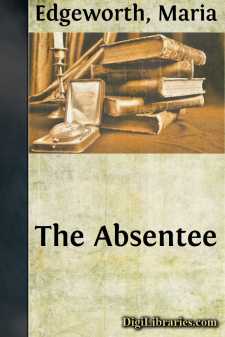Categories
- Antiques & Collectibles 13
- Architecture 36
- Art 48
- Bibles 22
- Biography & Autobiography 813
- Body, Mind & Spirit 142
- Business & Economics 28
- Children's Books 17
- Children's Fiction 14
- Computers 4
- Cooking 94
- Crafts & Hobbies 4
- Drama 346
- Education 46
- Family & Relationships 57
- Fiction 11829
- Games 19
- Gardening 17
- Health & Fitness 34
- History 1377
- House & Home 1
- Humor 147
- Juvenile Fiction 1873
- Juvenile Nonfiction 202
- Language Arts & Disciplines 88
- Law 16
- Literary Collections 686
- Literary Criticism 179
- Mathematics 13
- Medical 41
- Music 40
- Nature 179
- Non-Classifiable 1768
- Performing Arts 7
- Periodicals 1453
- Philosophy 64
- Photography 2
- Poetry 896
- Political Science 203
- Psychology 42
- Reference 154
- Religion 513
- Science 126
- Self-Help 84
- Social Science 81
- Sports & Recreation 34
- Study Aids 3
- Technology & Engineering 59
- Transportation 23
- Travel 463
- True Crime 29
Sort by:
CHAPTER I "Quod felix faustumque sit!" There is a happiness which no poet has yet properly sung, which no lady-reader, let her be ever so amiable, has experienced or ever will experience in this world. This is a condition of happiness which alone belongs to the male sex, and even then alone to the elect. It is a moment of life which seizes upon our feelings, our minds, our whole being. Tears...
more...
FOREWORD That vast stretch of opal islands; jade continents; sapphire seas of strange sunsets; mysterious masses of brown-skinned humanity; brown-eyed, full-breasted, full-lipped and full-hipped women; which we call the Orient, can only be caught by the photographer's art in flash-light pictures. It is like a photograph taken in the night. It cannot be clear cut. It cannot have clean outlines. It...
more...
by:
Mor Jokai
Chapter I Choosing a King The storm had spent itself, the sea was calm again, and on its smooth surface tossed empty casks and shattered masts,—the monuments of shipwrecked vessels. The stormy petrels had vanished with the tempest, and the flying fish were now making their clumsy leaps from wave to wave,—a sign of fair weather. A brigantine which had outlived the gale was moving slowly over the...
more...
"I'VE been thinking," said I, speaking to my husband, who stood drawing on his gloves. "Have you?" he answered; "then give me the benefit of your thoughts." "That we shall have to give a party. You know we've accepted a number of invitations this winter, and it's but right that we should contribute our share of social entertainment." "I have thought as...
more...
by:
Sax Rohmer
CHAPTER I THE TRAVELER FROM TIBET "Who's there?" I called sharply. I turned and looked across the room. The window had been widely opened when I entered, and a faint fog haze hung in the apartment, seeming to veil the light of the shaded lamp. I watched the closed door intently, expecting every moment to see the knob turn. But nothing happened. "Who's there?" I cried again,...
more...
HENRY GOWER was dead at sixty-one—the end of a lifelong fraud which never had been suspected, and never would be. With the world, with his acquaintances and neighbors, with his wife and son and daughter, he passed as a generous, warm-hearted, good-natured man, ready at all times to do anything to help anybody, incapable of envy or hatred or meanness. In fact, not once in all his days had he ever...
more...
CHAPTER I Lost Hollow lies close at the foot of the mountain which gives it its name. The height of neither is great, geographically considered; the peak is perhaps eighteen hundred feet above sea level: The Hollow, a thousand, and from that down to The Forge there is a gradual descent by several trails and one road, a very deplorable one, known as The Appointed Way, but abbreviated into—The Way....
more...
by:
Edward Young
ACT THE FIRST. SCENE I.BATTLEMENTS, WITH A SEA PROSPECT. Enter Zanga. Zan.Whether first nature, or long want of peace,Has wrought my mind to this, I cannot tell;But horrors now are not displeasing to me:[thunder.I like this rocking of the battlements.Rage on, ye winds; burst, clouds; and, waters, roar!You bear a just resemblance of my fortune,And suit the gloomy habit of my soul.Enter...
more...
CHAPTER I Mrs. Assheton's house in Sussex Square, Brighton, was appointed with that finish of smooth stateliness which robs stateliness of its formality, and conceals the amount of trouble and personal attention which has, originally in any case, been spent on the production of the smoothness. Everything moved with the regularity of the solar system, and, superior to that wild rush of heavy bodies...
more...
by:
Maria Edgeworth
CHAPTER I 'Are you to be at Lady Clonbrony's gala next week?' said Lady Langdale to Mrs. Dareville, whilst they were waiting for their carriages in the crush-room of the opera house. 'Oh yes! everybody's to be there, I hear,' replied Mrs. Dareville. 'Your ladyship, of course?' 'Why, I don't know—if I possibly can. Lady Clonbrony makes it such a point...
more...











